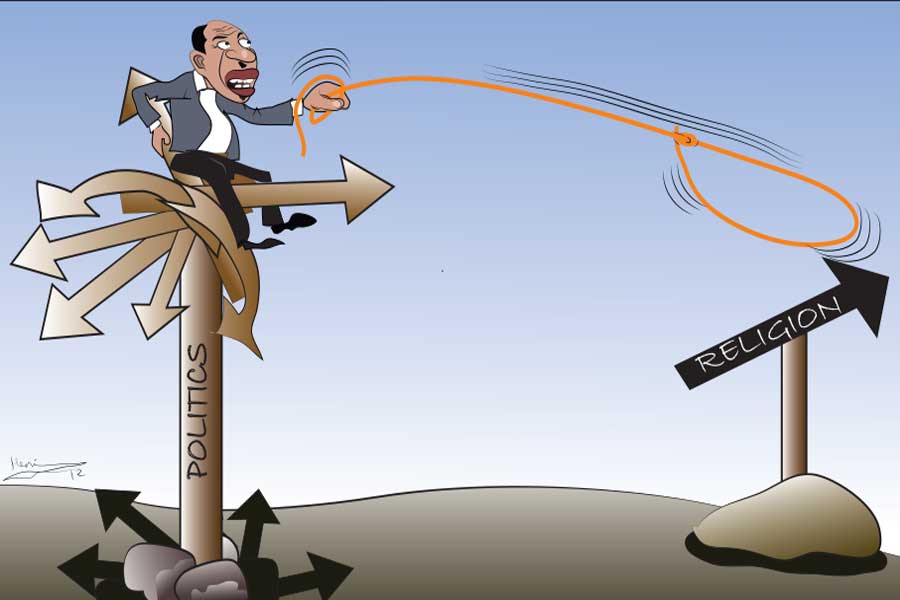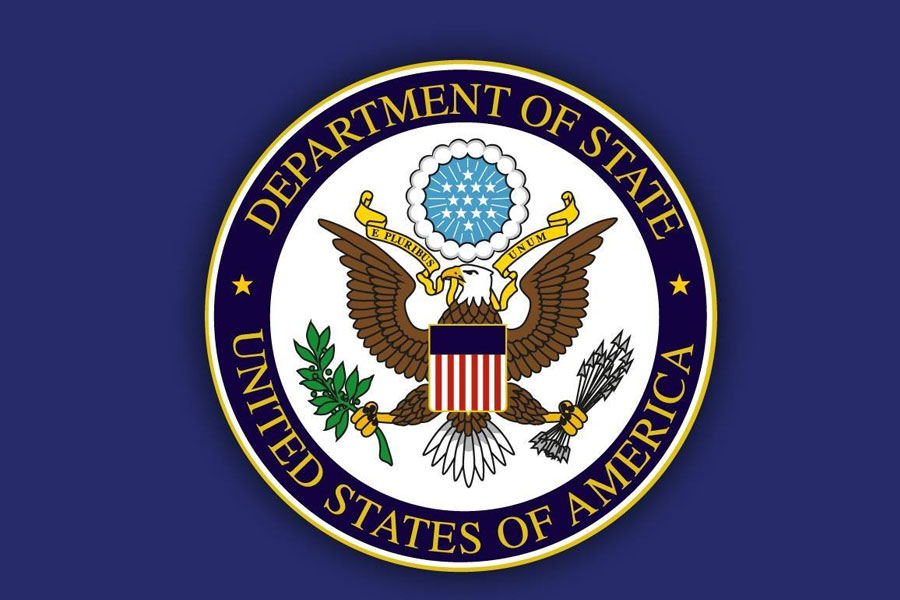
Sunday with Eden | Aug 31,2019
One day, I found a handwritten note in Amharic on my car. The note began with a greeting and explained that the writer had accidentally bumped into my car in our residential parking area. He found no visible damage but left his full name and phone number in case I needed to make a damage claim. The note ended with a sincere apology.
Surprised by this gesture, I immediately inspected my car and, to my relief, found no damage. I then called the writer, who did not answer right away, so I sent a text expressing my gratitude for his commendable handling of the incident. Later that afternoon, I received a call from him. He reiterated what he had written in the note and offered to cover any damages I might find. I thanked him for his honesty and integrity, and he humbly replied that he had only done what was expected.
His response made me reflect on how much our moral compass has shifted. My surprise and gratitude indicated that such integrity is not commonly expected nowadays. While the man’s behaviour was straightforward and just, it made me question our societal standards and how far we have strayed from such values.
A few months ago, the Commercial Bank of Ethiopia (CBE) was the victim of a major fraud involving mostly university students. A glitch in the system led to students taking advantage, and withdrawing money they were not entitled to. The Bank quickly corrected the glitch and identified the culprits, issuing a notice to return the stolen money. It was disheartening that most of these notices had to be posted on university campuses while the Bank President, during a press conference, lamented that the perpetrators were students—those who should be better role models.
This incident contrasts sharply with the man who left me the note. It highlights how the values of honesty and integrity may be lacking in the new generation. However, it is important not to generalise as the problem lies with the failings of the previous generation and society at large. An example of honesty in the younger generation occurred a couple of years ago when I left my mobile phone at an ATM in Century Mall. A young couple helped me call which was answered by someone who had found it. He waited for me at a food court and returned it. His kindness was commendable, and we even exchanged contact information to stay in touch.
These instances of honesty are heartwarming and show that integrity still exists. Many people return lost valuables, proving that the saying “honesty is the best policy” still holds.
However, it is difficult to uphold honesty in a world filled with injustice and unfairness. People sometimes resort to dishonesty to achieve their goals, creating false identities and stories to immigrate or gain financial advantages. Fraudulent activities, including identity theft, are rampant and damaging, harder to trace due to their virtual nature.
As the world becomes more globalised, the risk of dishonesty and fraud increases, posing difficulties even for institutions. For regions like sub-Saharan Africa, the preparations to combat these issues are insufficient. Equipping society with strong moral standards is crucial. A system promoting honesty and integrity is essential for an equitable and progressive future. Teaching these values from childhood ensures that people understand the importance of doing the right thing, regardless of the complexities of life.
The fraud incident is particularly concerning because it involved young students, who are supposed to be future leaders and role models. This situation reveals a major gap in the education provided to them. It is crucial to address this issue by integrating comprehensive moral education into the curriculum from an early age.
The issue of dishonesty in pursuit of better opportunities highlights the desperation many people face. While it is understandable that individuals seek better lives, resorting to falsehoods undermines societal trust and stability. It is essential to address the root causes of such desperation, including economic disparities and lack of opportunities, to reduce the temptation for dishonest behaviour.
Moreover, the rise of technology and the internet has made fraudulent activities easier to execute and harder to trace. Online scams, identity theft, and other cybercrimes are increasing. It calls for stronger cybersecurity measures and better education on digital literacy and ethics. People need to be aware of the risks and the importance of maintaining honesty in both the physical and virtual worlds.
The global nature of today's challenges means that dishonesty and fraud can have far-reaching consequences. It's no longer enough to focus solely on local issues; we must also consider the global context. International cooperation and robust legal frameworks are needed to tackle these problems effectively. At the same time, we must not lose sight of the importance of individual actions and personal integrity.
Individual actions matter. Each of us has a role to play in upholding and promoting honesty and integrity. Whether it's returning a lost item, being truthful in our interactions, or resisting the temptation to take shortcuts, our actions contribute to the overall moral fabric of society.
A just and equitable world starts with education, extends to our daily actions, and requires a collective commitment to doing what is right. The handwritten notes on my car and the subsequent interactions with honest individuals serve as powerful reminders of the importance of maintaining moral standards in our society. It reminds us that even in challenging times, integrity can prevail.
PUBLISHED ON
Jul 13,2024 [ VOL
25 , NO
1263]

Sunday with Eden | Aug 31,2019

Advertorials | Nov 15,2023


Editorial | Sep 21,2019

Verbatim | Sep 24,2022

View From Arada | Feb 01,2019

Viewpoints | Jul 31,2021

Radar | Jul 01,2023

Life Matters | Dec 17,2022

Life Matters | Dec 23,2023

Dec 22 , 2024 . By TIZITA SHEWAFERAW
Charged with transforming colossal state-owned enterprises into modern and competitiv...

Aug 18 , 2024 . By AKSAH ITALO
Although predictable Yonas Zerihun's job in the ride-hailing service is not immune to...

Jul 28 , 2024 . By TIZITA SHEWAFERAW
Unhabitual, perhaps too many, Samuel Gebreyohannes, 38, used to occasionally enjoy a couple of beers at breakfast. However, he recently swit...

Jul 13 , 2024 . By AKSAH ITALO
Investors who rely on tractors, trucks, and field vehicles for commuting, transporting commodities, and f...

Oct 4 , 2025
Eyob Tekalegn (PhD) had been in the Governor's chair for only weeks when, on Septembe...

Sep 27 , 2025
Four years into an experiment with “shock therapy” in education, the national moo...

Sep 20 , 2025
Getachew Reda's return to the national stage was always going to stir attention. Once...

Sep 13 , 2025
At its launch in Nairobi two years ago, the Africa Climate Summit was billed as the f...